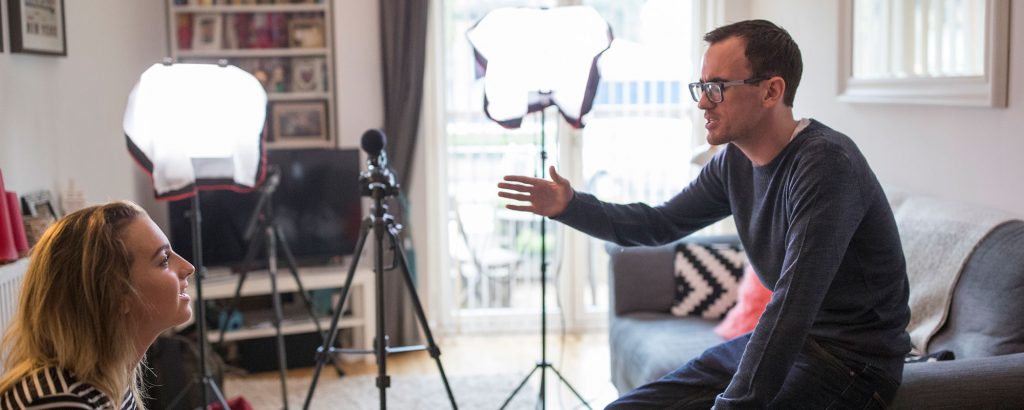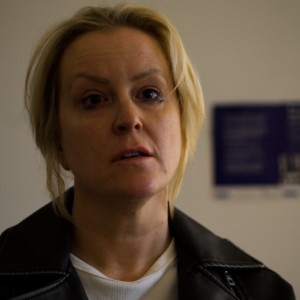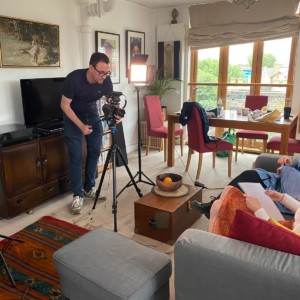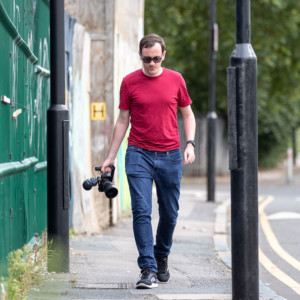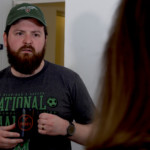1. It’s lonely!
You may be working alone, or you may be working with fifteen people. But then you finish a project and those fifteen people are gone.
It seems glamorous to people who don’t do what you do but the reality is, you have to navigate your way alone. You have to get yourself up in the morning and you have to get to work.
Having a network of similarly minded people around you is crucial. Your friends who work the 9-5 get to chat to Tim over coffee in the morning, then they moan to Gina at break time, then they have a laugh in the afternoon as Paul and Chris banter about who makes the tea.
You don’t have that.
But it’s crucial you create it. You have to keep in touch. Meet people and bounce around ideas. And you also need trusted friends who you can share a coffee with while saying, “my client is insane and driving me crazy!”
2. There are quiet times!
When you’re starting out, quiet times can come anytime if not most of the time. But as you become more established, you notice there are seasons.
It’s easy to go into meltdown when it’s not as busy. But you have to trust the seasons. Use the quiet time to read up on your craft. Or better yet, forget your craft and read a book about spaceships (if you’re a self-employed astronaut, use the quiet time to read about indie filmmaking.)
3. The Inner-Critic is always ready to pounce!
Spend too much time alone (point 1), or panic too much about the quiet times (point 2), or perhaps even just wake up on a random morning and miss a coffee; and your inner critic will spring to life. “You’re useless!” “You’ll never make it!” “The others are better!”
The voice in your head can be ruthless. And because you work alone, there are no witnesses. No one looking across the office to say, “you okay mate?”
There are many tools for conquering that voice, but I offer one of my favourites:
4. Lead With What Fires Up Your Creativity!
There is always a push to be normal that comes from the voices around you. It’s a push to conform.
It’s HARD to make a short film that is truly you. To create a project that, by nature of being something creative, is as likely to be terrible as it is good. But you HAVE to risk being terrible, you have to be creative; knowing that if you’re taking risks, greatness is not guaranteed, but you’ll feel alive!
This is the age of Instagram, where everyone’s lives look perfect. Every actor you know, it seems, is on their way to an Oscar.
But it’s not real. Nobody’s life is perfect. You’re not competing with anyone. The magic and the self-worth won’t come from being better than others, they’ll come from working creatively, from expressing yourself.
Being self-employed only works if you have something unique to offer. Something that makes people want to work with you. You have to find your niche.
5. Your Niche is Essential!
I have a friend who knows everything about Rugby Union. If you need someone to write an article about it, or turn up at the stadium to do some commentary, he’s the MAN. He knows the sport inside out. There’s no-one else like him.
He honed this over many years. It wasn’t immediate, but he got better and better. Now he makes a great living doing work for many of the top teams in British Rugby.
I have another friend who directs great corporate videos. Adding a human touch to very dry, boring topics. He flies all over the world doing this. He knows how to make the boring interesting. And he gets paid handsomely for it.
If you find yourself bidding for work every tine someone on Facebook says “need a cameraman!”, then you’re going to be struggling, because you don’t have your niche yet, your unique thing that will make potential clients come find you.
The niche is essential!
6. Confidence is Key, but it must be earned.
You have to be confident, but it has to be real. When you’re starting out and you know nothing it’s easy to talk like you’re Quentin Tarantino but you’ll soon get found out, because you don’t know anything.
For example, when I started out directing, I could find certain actors intimidating. I was worried they’d think I wasn’t good enough.
But I worked at my craft. Now I’ve worked with hundreds of actors, I’ve met every type of problem an actor can have, I know how to handle it, so it isn’t daunting.
I had a friend mention recently how the director on the set of her short film went into a panic because they didn’t know how to address the actors. Made me realise how far I’ve come. I’m confident because of my experience, and that takes time.
7. You Need a Work/Life Balance.
Or so I’m told. If you know how to do this, please let me know.
8. You need to not have a work/life balance.
There’s some truth to this, too. When you’re doing the actual work, you’re improving. But what sets you apart is the research and pratice you put in outside of the work day. You need that extra-curricular time where you read the books, watch the YouTube tutorials. Where you analyse your chosen field inside out.
That can’t happen when you’re editing all day on a project, so it tends to come in the evenings and during the weekend.
I’m not saying it should. I’m just saying that those I know who are working consistently, tend to have put the hours in.
9. You need time for imagination.
This is maybe the most important point. You need to sit and stare at the sky. You need to walk and let go of everything.
I hardly ever do this.
I nearly do, every day. But then I get busy, or too lazy.
But it’s crucial. I need it. You do too.
10. Nobody Knows Anything
It’s that old William Goldman saying about the industry. Nobody knows a thing. Even this blog, I realise, is just another internet person giving advice when instead they should be doing their work.
Nobody knows anything. Follow what’s right for you!

